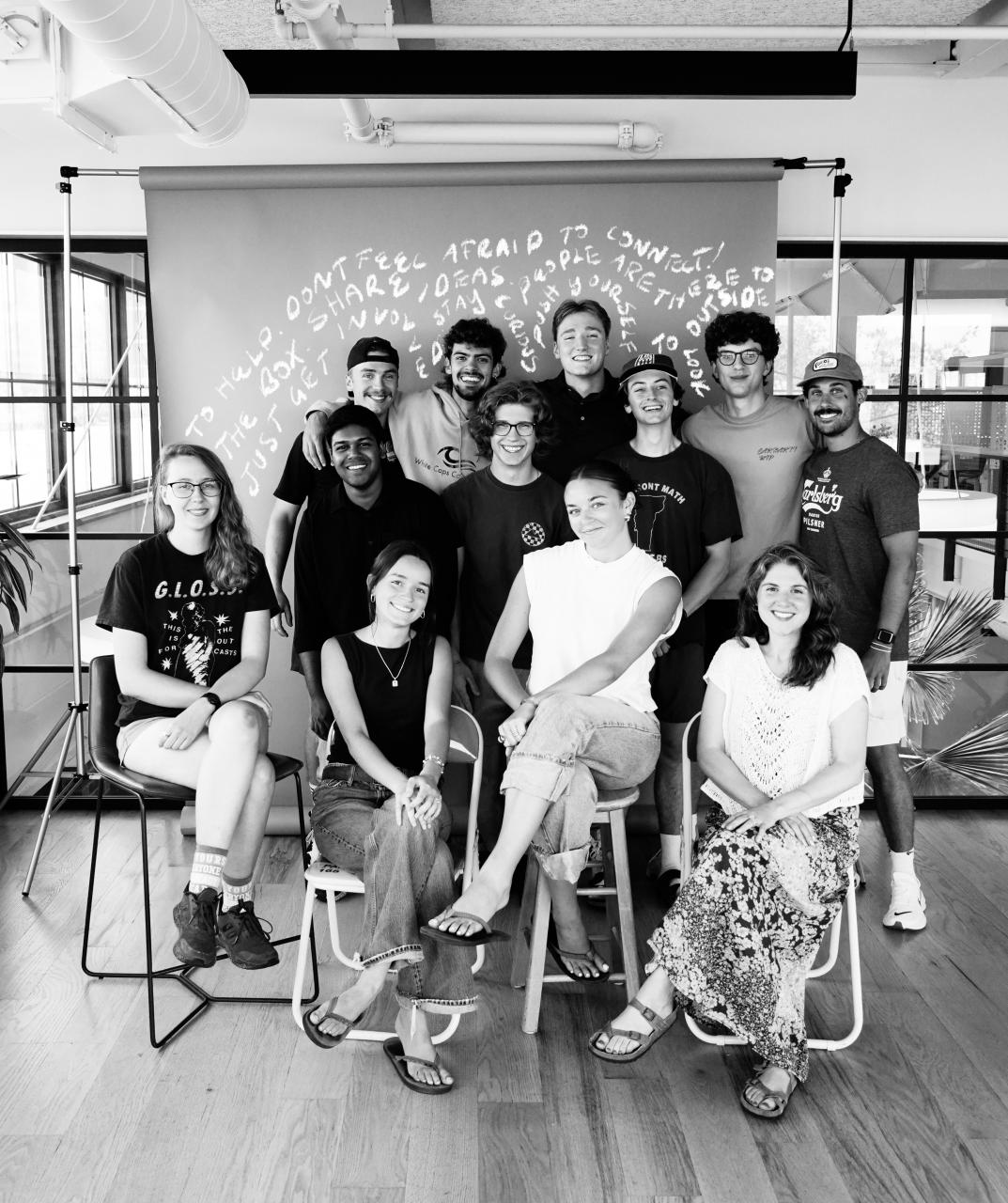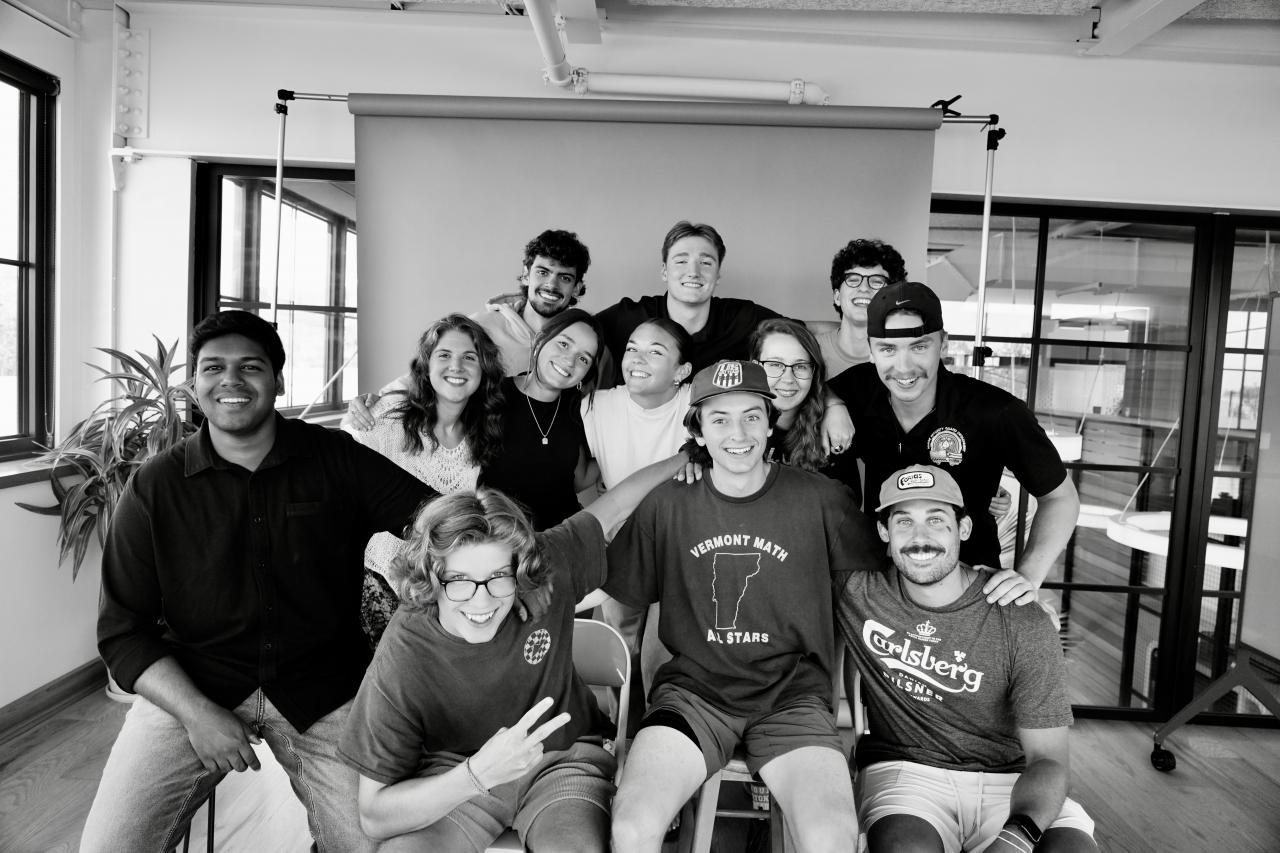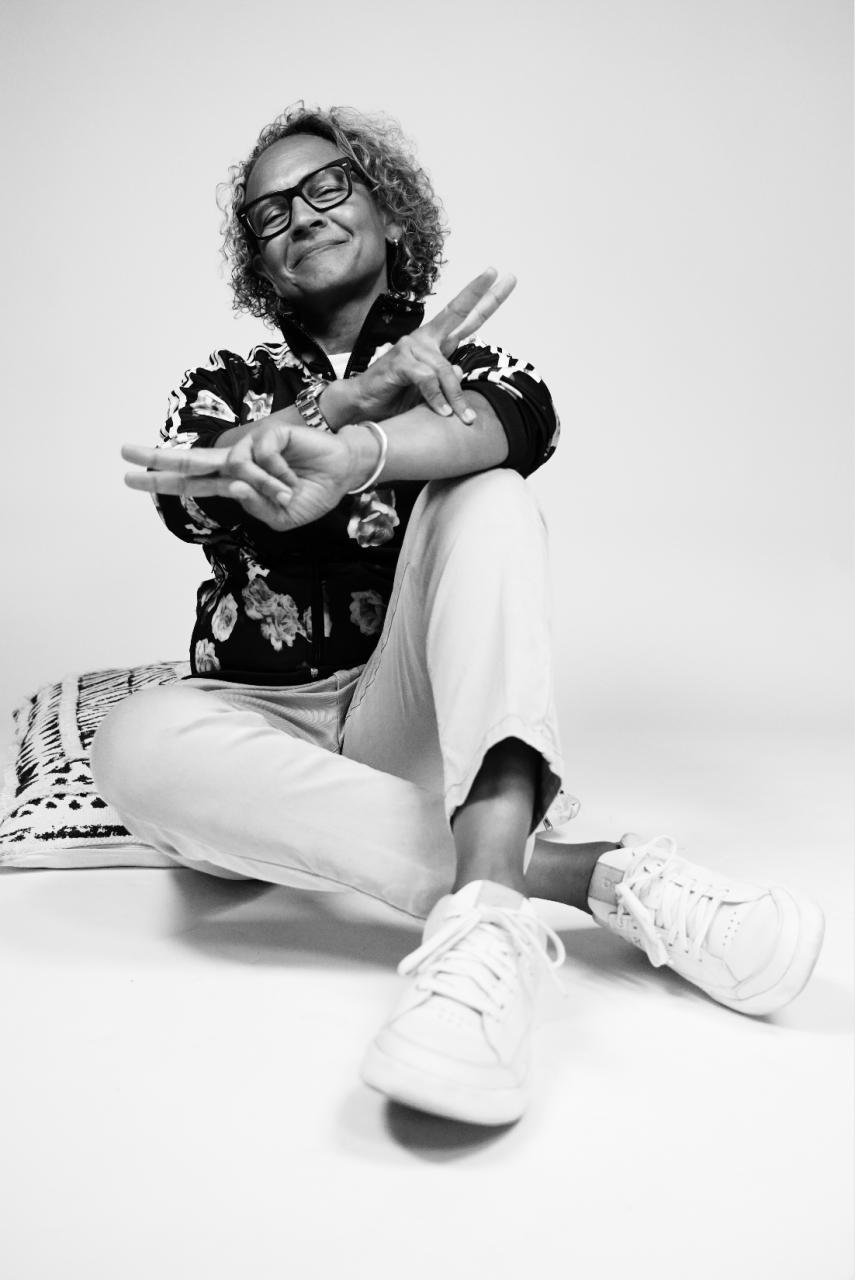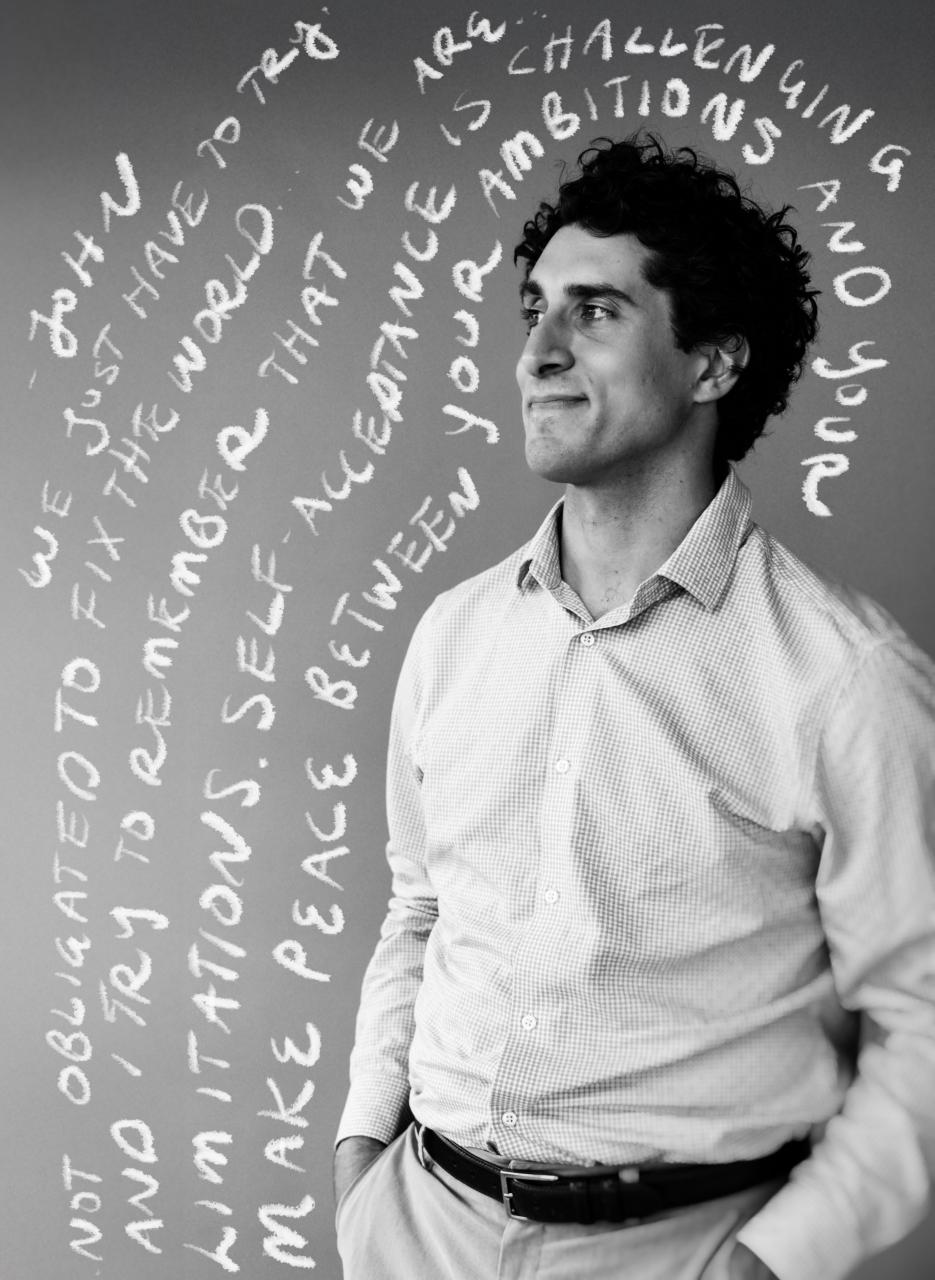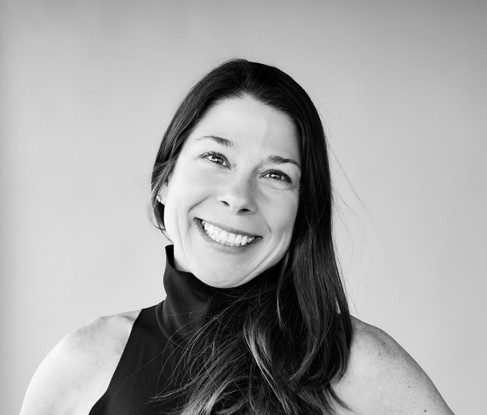Advice from the next generation of entrepreneurs
Q: What do you all do?
Group:
We’re the ARC program. It stands for Academic Research Commercialization. We're out of the University of Vermont, and we work with undergraduates and faculty researchers to help commercialize emerging technologies.
Q: You’re all entrepreneurs. Do you own businesses right now?
Logan:
Yeah, I own a storage moving company for college students called Campus Storage Solutions. We started out of UVM 2 years ago, and just recently, won the Myers Cup. We’re learning here in ARC how to further commercialize that.
Ruben:
I have an automotive detailing and photography business (the thought of it at least). I started it a little while ago, about a year. I started locally. It’s called Autofocus.
Cody:
I work in the construction industry. Recently, I've been working with the startup. We target a very niche market of clay tennis courts.
*Logan:*
He's also a Co-Founder!
Mollie:
I run a fiber farm in Monkton, Vermont called White Dog Farm. I keep a flock of sheep, and then I create knit garments and housewares.

Q: What’s one impactful piece of advice a mentor has given you?
Rowan:
Do something that is meaningful to you. You shouldn't be doing something that's not what you want to be doing because you find a lot of growth in doing what you like to do.
Logan:
I got one… The only way to get started is by starting. So if you never actually take that first step, and go full in on it. You'll never actually get anything done. It’ll never become what it could be. Just do it. Literally.
Oliver:
A piece of advice I got before going to college about career and pursuing and developing your career skills is that probably the most important career skill is communication. I think throughout the ARC program, through navigating such a broad landscape with our team and across UVM, it's been so helpful to work on communication skills.
But over the summer, we've seen a lot of things take off. And that's because we've been able to talk to people all the time, get on calls and really get that communication going.
Lila:
Yeah, I definitely have to emphasize that. As a data science, computer science major this internship doesn't necessarily have a lot to do with what I'm learning in my classes, but it's so important in the ways that I'm learning so many other soft skills.
Q: What advice would you give to others based on what you’ve learned?
Jordan:
There's a lot of opportunities to do real world things like whether it's ARC or different programs through your individual college at UVM. You can learn a lot outside the classroom.
Rowan:
Just stay curious. Try to push yourself to look outside the box a little bit more.
Q: What role does community play in your life?
Ryan:
It helps being in the ARC community. We all share ideas and you know if we’re stuck in like customer discovery, people are always there to help.
Q: For those of you who aren’t from Vermont, how do you feel you’ve integrated into the community here?
Jordan:
I feel like the past couple of months working out of Hula and VCET, I’m not from Vermont, but over the past few months working at Hula and with VISA, I’m really well versed in the business and entrepreneurship communities. It’s not that big of a space, but everyone is really nice and welcoming. It’s a lot of smart people doing cool things.
Charlie:
I think because of the size of this community and the state, the energy behind startups is so huge. And you feel that… People are pushing each other just as much as they're pushing themselves to advance everyone's success.
Lila:
There are a lot of inside jokes that I’m still missing, but I do think that I'm learning so much about, like, Burlington and the surrounding areas that I just think I would never have, found out and explored just by myself.
Q: Have you had a pivotal career moment where you realized you were on the right path?
Oliver:
I'm an engineering major. An environmental engineering major. And most of the internships are way less on the business side than anything I've been doing here with ARC. It's just opened my eyes— maybe I want to work more on the business side at an engineering firm or something like that.
I want to keep my options more open instead of pursuing a highly technical role because I like the creativity and the ability to work with people that comes with a role more on the commercialization side of things.
Cody:
I haven’t experienced one particular moment. Coming from a background in construction management, it’s been nice to have the opportunity to actually think creatively from a commercialization perspective. Having to learn about a new, exciting technology has definitely pointed me towards the tech world and the startup world.
Q: How do you handle setbacks or failures without losing motivation?
Maggie:
Something that our researcher for Biobe, Bryn, always says– she’s is really good at reframing things–”How can we benefit from this? What are the pros of this?” . Anytime something doesn’t go as planned, she shifts the mindset to “how can we learn from this?” Which I think is something we're starting to slowly internalize even though it's hard.
Lila:
This is something my team actually just experienced. We just had a meeting with Mollie and Jesse, another one of our advisors about where we’re going with our technology and how to move forward as a team. And we sort of realized that there is no viable way to keep moving forward with this technology.
Jesse definitely reframed it. It wasn't a failure if we can't really move forward with this technology. You know, we're actually saving UVM innovation so much time and energy to stop pursuing it, then to keep pursuing it until it inevitably fails.
So it's more about the skills and what you've gained rather than what the failure was.
Q: What personal habit or mindset shift has improved your life?
Rowan:
I think just balance overall. Also, not sticking yourself in a box. And taking breaks.
Charlie:
Something that’s been working for me is dancing. Going out and dancing with your friends. We'll have dance parties at my friend's house. It translates into so many different aspects of life. You don't care about anyone watching you, and you approach things a lot more confidently. Dance it out.
Q: Any transformative books, speeches, or podcasts you'd recommend?
Oliver:
A couple of months ago I went to my cousin’s graduation. Angela Duckworth gave the commencement speech. She's a psychologist at UPEN, and she's done a lot of advising for professional sports teams, CEOs, and a range of other professionals.
A big thing that she kept emphasizing was trying to reclaim your attention, especially with respect to your phone.
Another thing she was talking about was not leaving everything up to willpower, but trying to make the environment around you supportive of your own productivity.
She has her own podcast, she has a book called Grit that was a bestseller. So I just recommend her writing.
Ruben:
I like the Acquired podcast. They talk about how big companies like Costco or Visa were built from the ground up. It’s every single step of the process they took. Who they met, talked to, how they got deals— stuff like that.

